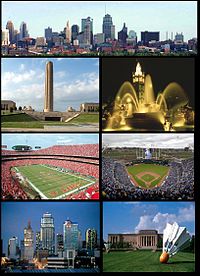
Photo from wikipedia
Mexico City Metropolitan Area (MCMA) is the most populated urban area in the country. In 2010, MCMA required 14.8% of total energy domestic demand, but greenhouse gas emissions accounted for… Click to show full abstract
Mexico City Metropolitan Area (MCMA) is the most populated urban area in the country. In 2010, MCMA required 14.8% of total energy domestic demand, but greenhouse gas emissions accounted for 7.7% of domestic emissions. Mexico has massive renewable energy potential that could be harnessed through solar photovoltaic (PV) technology. The problem to explore is the relationship between local and federal public strategies in MCMA and their stance on energy transition concern, social empowerment, new technology appropriation, and the will to boost social development and urban sustainability. A public policy typology was conducted through instruments of State intervention approach, based on political agenda articulation and environmental local interactions. Social equality is encouraged by means of forthright funding and in-kind support and energy policies focus on non-renewable energy subsidies and electric transmission infrastructure investment. There is a lack of vision for using PV technology as a guiding axis for marginalized population development. It is essential to promote economic and political rearrangement in order to level and structure environmental governance. It is essential to understand people’s representation about their own needs along with renewable energy.
Journal Title: Environmental Science and Pollution Research
Year Published: 2017
Link to full text (if available)
Share on Social Media: Sign Up to like & get
recommendations!